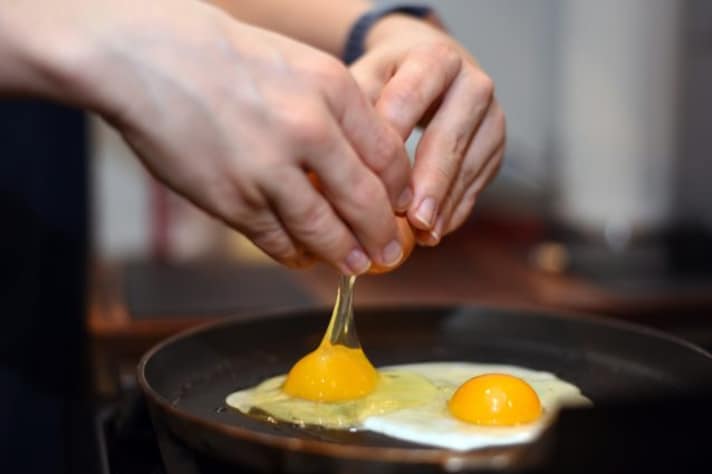Here’s Why You Should Never Salt Eggs Before Cooking Them (And When to Salt Them, Instead)
Salting eggs before cooking causes them to release water and break down proteins, leading to a watery, rubbery texture and dull flavor. The best time to salt is mid-cooking, when eggs are partially set, or just before serving. This preserves their structure and enhances their natural taste, ensuring perfectly fluffy, flavorful results every time.

Eggs. They’re the quiet superheroes of the culinary world. They bind, they fluff, they shine—sometimes all at once. But they’re also fragile, temperamental little things that demand respect. One of the most debated topics in the kitchen is when to salt your eggs: before, during, or after cooking. Here’s why the first option is a terrible idea, and what you should do instead to get those eggs singing with flavor without sabotaging their texture.
Salting Too Soon Is a Big Mistake
Salting eggs before cooking may seem harmless, but it’s a rookie mistake that can lead to disaster. The moment salt touches raw eggs, it begins to draw out moisture and break down proteins. This can cause your eggs to weep—literally. The extra liquid makes them slimy rather than silky when cooked, especially in scrambled eggs or omelets. Instead of light and fluffy, you’ll be stuck with a sad, rubbery mess.
Think of it like brining a steak; while salt works wonders for meat over time, eggs simply don’t have the structural stamina to endure this kind of treatment pre-cooking. The chemistry is delicate, and early salting throws off the balance entirely.
The Wrong Kind of Scramble
When you salt eggs before whipping or scrambling them, you might notice they turn watery and harder to control in the pan. Why? Salt dissolves proteins in the eggs, breaking them down prematurely. The result is eggs that struggle to hold together when they hit the heat, leading to a mushy texture—not the tender curds you were dreaming of.

And it doesn’t end there. Over-salted raw eggs can also cook unevenly, with some parts firming up too quickly while others remain underdone. So much for that perfectly velvety consistency!
Salting’s Double-Edged Sword
Salt does enhance flavor, but timing is everything. Adding it too early dulls the nuanced taste of eggs, making them taste oddly flat despite being salted. Instead of amplifying their natural richness, early salting washes it away. Think of your eggs as a blank canvas. Pre-salting is like trying to paint with watercolors on a soaked sheet of paper—it dilutes everything. Waiting until the eggs are partially cooked or fully set ensures the salt enhances the flavor without overpowering the subtle umami.
When to Salt Eggs
Now, for the million-dollar question: when should you salt your eggs? Ideally, add salt during cooking, once the eggs have started to set. If you’re scrambling, sprinkle it in once the curds are forming but still soft. If frying or poaching, season just before serving.
Salting mid-cooking allows the eggs to maintain their structure while still distributing the seasoning evenly. It’s like adding fuel to a fire at the right moment—enough to keep it blazing without overwhelming it. Timing your salt is all about chemistry. Once eggs hit the pan and begin to cook, their proteins coagulate, creating a more stable structure. At this point, salt can work its magic without wreaking havoc. You get all the flavor-enhancing benefits without compromising texture or moisture.

What If I Salt My Eggs Once They're Done Cooking?
For purists, salting after cooking is another solid option. Finishing salt—like flaky sea salt or fleur de sel—adds a delightful crunch and a burst of flavor that complements eggs beautifully. Just remember, this method relies on the eggs being cooked well in the first place. Overcook them, and no amount of fancy salt will save you.
Post-cooking salting is especially effective for fried or poached eggs, where the soft whites and runny yolks contrast perfectly with a pinch of salt crystals. It’s the cherry on top—or, in this case, the salt on top—that elevates simple eggs to something extraordinary.
;Resize,width=767;)


;Resize,width=712;)
